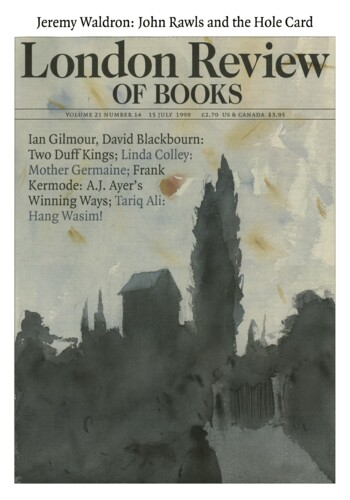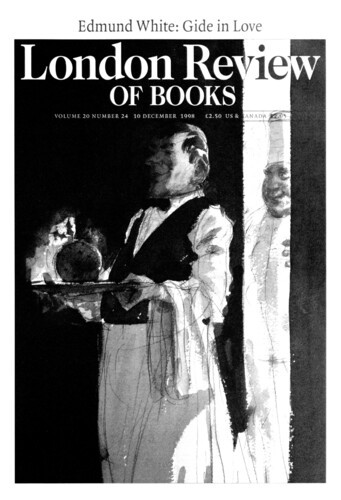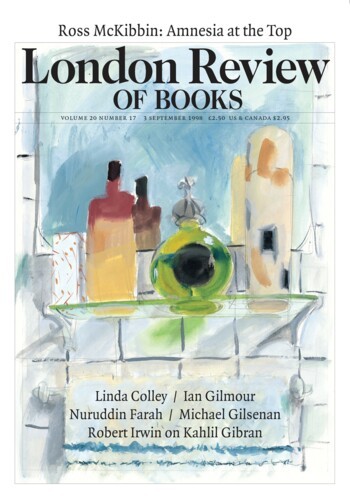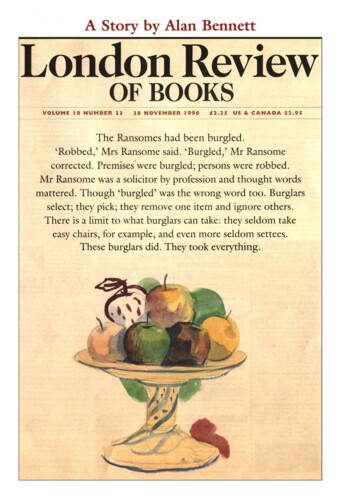Fuss, Fatigue and Rage: Two Duff Kings
Ian Gilmour, 15 July 1999
George IV was highly unpopular in his lifetime, and almost equally unpopular after it. Nobody regretted his death except his mercenary mistress, Lady Conyngham – the supply of jewels and trinkets had been cut off – and even she was bored with him. Grief was absent at his funeral. ‘A coronation could hardly be gayer,’ noted a peer, and the Times reported that there was ‘not a single mark of sympathy’ in the congregation. It seemed, wrote Mme de Lieven, that George IV had ‘never seriously inspired anyone with attachment’. Later observers viewed him no more favourably, Thackeray catching the prevailing flavour in 1855 and fixing it for future generations in his brilliant essay in The Four Georges.’‘





